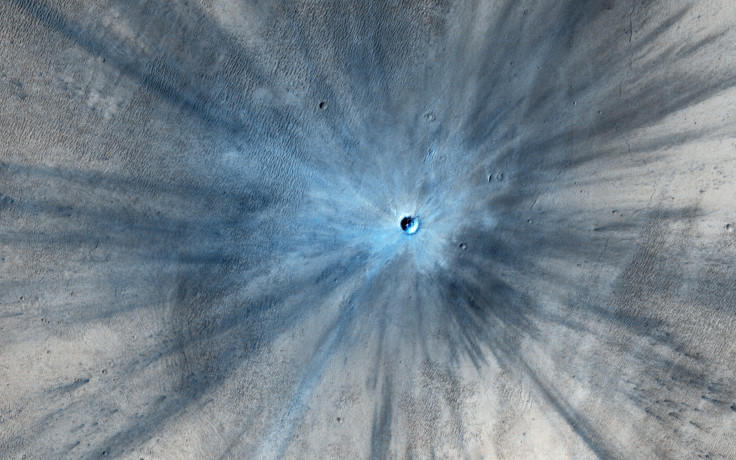Spending Money To Name A Mars Crater ‘Against Spirit Of Free And Equal Access To Space,’ Says IAU
The International Astronomical Union, which oversees naming conventions for planets and planetary features, is pouring icy water over Uwingu’s “Name a Mars Crater” campaign. According to the IAU, there are plenty of free ways to get involved in naming celestial objects, and paying $5 or more will not make your Martian crater name official.

The IAU released a statement expressing its concerns with Uwingu’s desire to create a so-called citizens’ map of Mars. While the startup says the money it takes in will go to fund space exploration and research, the IAU says that violates what is so great about space in the first place. “Recently initiatives that capitalize on the public’s interest in space and astronomy have proliferated, some putting a price tag on naming space objects and their features, such as Mars craters. The International Astronomical Union (IAU) would like to emphasize that such initiatives go against the spirit of free and equal access to space, as well as against internationally recognized standards,” the group said in a statement.
There is a set standard in place for naming celestial objects and features, and the IAU says any names purchased from Uwingu will not become official Mars crater names. There are ways for the public to get involved, and there have been recent examples of scientists opening up the naming of their discoveries to the general public.
Most recently, the names of Pluto’s newly discovered moons were selected by the public. The SETI researchers responsible for the discovery set up a poll and the public submitted, and voted, on names for the moons temporarily dubbed P4 and P5. While Vulcan was the most popular pick, named after Spock’s home planet, and is the name of a Roman god, it was not linked closely enough with Pluto, the god of the Underworld. So the winning names chosen were Styx, the river of the dead, and Kerberos, the monster guard dog.
NASA has also opened up naming craters on Venus to the public, asking for names of notable women, as part of the 1989 Magellan Venus mission, notes IAU.
Another way for the public to get involved in the naming process is to suggest names to the appropriate working group which, for naming surface or geological formations, would be the Working Group for Planetary System Nomenclature.
This is not the first time Uwingu has ran afoul of the IAU. In 2013, Uwingu's "Name an Exoplanet" campaign drew similar criticism. Considering the popularity of both programs, the IAU could try to capitalize on public interest and open up the naming process to the public or look into ways to promote public awareness of its work. As for Uwingu, it does have the support of the scientific community, is raising awareness about Mars and has contributed thousands of dollars to several research programs. Most recently, Uwingu partnered with Mars One for its upcoming missions.
© Copyright IBTimes 2024. All rights reserved.






















